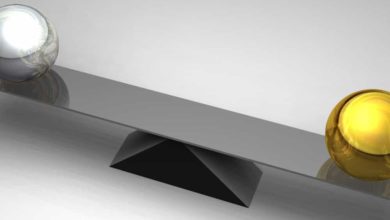Medical school interview preparation requires long-term practice and continued improvement. Over time, you will accumulate experiences and draw from them to give thoughtful answers to your interviewers’ questions. Strong extracurricular activities will play a large role in helping you grow as an applicant and as a person. You will have many chances to interview for research or leadership positions during your undergraduate career. While these interviews may seem daunting at first, these serve as extremely valuable practice for a skill you will use time and again throughout your life. Here are some tips and guidelines to get you started that I have picked up from personal experience on both sides of the interview table.
Before the Interview
-Be early
With all that’s on your mind before an interview, the last thing you need is additional stress from running late. I recommend showing up at least fifteen minutes before your scheduled interview. This gives you ample time to gain composure and walk in with a calm mind. You can take precautions such as confirming the time and exact location with the person that set up the interview. If you are unfamiliar with the interview location, I recommend scoping it out a day before if possible to make absolutely sure that you do not end up lost. If you come to an interview late you may be dismissed immediately, but even if you are invited to proceed you do not want to start the interview already trying to recover from an avoidable mistake.
-Be prepared
Take time to research the position for which you are interviewing. If it is research-related, read a couple of papers written by the interviewer and mention what interested you during the interview. For an undergraduate organization, peruse their website or ask someone who is in the group to better understand what to expect. Anticipate the questions they may ask you. If you are a beginner, you can have a friend or mentor practice basic interview questions with you to get an idea of how it feels to respond. The day of your interview, bring a copy of your resume and any other materials they have requested.
-Be professional
Professionalism stems from the way present yourself, so be sure to dress appropriately and appear groomed and put-together for your interview. While the level of formality may vary slightly depending on the specific interview, you can always go with a dark suit and a white button-up shirt. When you meet your interviewer(s), make eye contact, give a firm handshake, and smile. First impressions go a long way, and this is an easy part of the interview to practice and perfect.
|| What to Wear to Med School Interviews: Men || What to Wear to Med School Interviews: Women ||
During the Interview
-Delivery vs. content
Many people new to interviewing make the mistake of sacrificing good delivery of their answers in pursuit of better content. Due to the high-pressure nature of most interviews, you will likely not be able to pull the perfect answer out of the hat for any given question. Even the greatest answer to an interviewer’s question can be ruined by a strained delivery. To avoid this, interviewees often make the mistake of memorizing formulaic answers and using them even when they are not a good fit for the question. Develop good habits in smooth delivery of your answers, rather than practicing the answers themselves. By doing so, you will free up mental power to work on content and create a tailored answer every time.
-Avoid false starts
The immediate panic that comes with gathering the words to answer a question is perhaps the worst part about interviews. In the moment before you begin speaking, take extra time to be sure that the example or anecdote you pick is the one you want. There is no need to fear awkward silences! Asking for a few moments to think shows maturity and is much better than starting down a wrong path that may not even answer the question asked. One trick is to ask the interviewer to clarify their question – this gives you an extra few seconds to collect your thoughts and come up with more options.
-Kick bad habits
In high-pressure environments like interviews or public speaking events, your speaking habits become ten times as noticeable. Have a friend observe you while you give a short speech and ask him or her to listen for filler words such as “um” or “like” and take note of any repetitive hand gestures. Being aware of your nervous tendencies is a huge step in reducing them. If your speech is rushed under pressure, focus on slowing down your answers to give your brain enough time to catch up and think of where you want your answer to go. Otherwise, you run the risk of going on tangents to fill in any gaps. Practice pays off the most in helping you kick your bad habits.
-Wrap it up
The most crucial requirement for any answer is that you end it! Avoid drifting off, ending with “so yeah,” or getting so deep into your answer you forget what the question was. You should constantly gauge how your interviewer is reacting to your responses, and use that to decide whether or not to continue with more detail. How you conclude your answer determines the impression that you will leave on the interviewer, so be sure to end strong with a summary of the point you wanted to make with your answer. Ideally, you want to reach a point where the content of each of your answers could warrant an end like “and I believe that shows how great of a candidate I am for this position.”
|| Read: Weekly Weigh-in: Med School Interview Tips ||
After the Interview
When the time comes to end the interview, your interviewer will likely ask if you have any questions regarding the position. I recommend having several questions prepared that demonstrate you did your homework and that you know what you are getting yourself into. Interviewing is a two-way conversation, and it should be as much for you to determine if the position is the right fit for you as it is for the company, lab, or organization to determine if you are right for the job. Thank them for their time and end the way you started: look them in the eyes, give a firm handshake, and smile.


